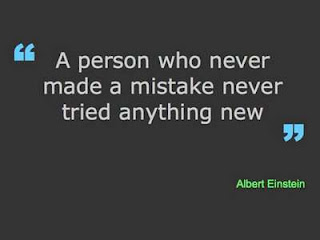Significance of Assessment
Assessment is an integral part of instruction, as it determines whether or not the goals of education are being met. Assessment affects decisions about grades, placement, advancement, instructional needs, curriculum, and, in some cases, funding. Assessment inspires us to ask these hard questions: "Are we teaching what we think we are teaching?" "Are students learning what they are supposed to be learning?" "Is there a way to teach the subject better, thereby promoting better learning?"
Today's students need to know not only the basic reading and arithmetic skills, but also skills that will allow them to face a world that is continually changing. They must be able to think critically, to analyze, and to make inferences. Changes in the skills base and knowledge our students need require new learning goals; these new learning goals change the relationship between assessment and instruction. Teachers need to take an active role in making decisions about the purpose of assessment and the content that is being assessed.
Assessment is needed for improvement. Improvement, with its internal focus provides
· opportunities for the academic community to engage in self-reflection of its learning goals, to determine the degree to which these goals correspond to student and societal needs, and to evaluate if students’ activities, products, or performances coincide with the academic community’s expectations;
· offers information to students about the knowledge, skills, and other attributes they can expect to possess after successfully completing coursework and academic programs.
· establishes ways for academic units to understand the dimensions of student learning when seeking to improve student achievement and the educational process.
· Assessment is needed for accountability. Accountability, with its external focus, provides
evidence of student achievement to accreditation groups, state legislators, and other stakeholders in education.
evidence of student achievement to accreditation groups, state legislators, and other stakeholders in education.
The simple process of observing and measuring learning is termed as assessment. Assessments are tests conducted in any subject, including specific curriculum subjects like social science or chemistry, or more detailed global skills like writing abilities used in several areas of learning. Assessments are carried on at all stages of learning, right from primary school to senior secondary school to universities to organizations. Wondering why assessments are important given the fact that they are taken at every stage of life? There are two major purposes listed for the significance of assessment—to provide more effective instruction and to evaluate achievement or learning. Find out more useful purposes that assessments serve in various fields.
Read on
Diagnostic Feedback
By examining a student at the basic level, teachers are able to evaluate the student’s knowledge base and his performance base. By assessing him on certain parameters, the teachers can in a better way understand what the needs of the student are, given his performance in the assessment. Furthermore, what more and new has to be taught to the student can be noted down after assessing the student.
Evaluates Progress
After educating the students a certain portion of the curriculum or course, taking the assessment helps teachers to judge how well the children have understood the lessons delivered. Also, including some applied questions gives a clear picture of true understanding of the subjects so taught. Are the students able to memorize the new knowledge that they have just gained? Can they demonstrate and use the new skills in other assignments and projects as well? Furthermore, with the kind of grades and marks the students achieve, teachers can analyze whether their teaching methods or approaches are effective or not. Any changes or modifications in the lessons or approaching methods can be made to help the students with a more comfortable teaching technique.
Motivates Students
By writing assessments and coming out with flying colors, students are in a better position to proudly declare that they have successfully understood the subjects and lessons taught so far. These assessments enable them to see where they stand among the rest of the class, in terms of learning. In case of poor grades, assessments serve as a motivational tool to work hard and take the lessons more seriously, in order to achieve better results.
Motivates Teachers
By going through the performances of the students, teachers can easily analyze their success in embedding the knowledge within students. While good performers can be set aside for the time being, poor students should be given more attention to help them improve and match the good performers. Also, it motivates the teachers to come up with new inspiring and creative techniques for helping the students proceed in a more enhanced direction.
Allocates School Resources
Assessments help in directing the school officials to allocate their educational resources in the best possible manner. For example, students who are not delivering constant good performances, can be asked to stay back to attend an after-school program where they can be given the requisite attention. Teachers, herein, can focus on their weaknesses and offer bonuses to help them perform better academically.



Comments
Post a Comment